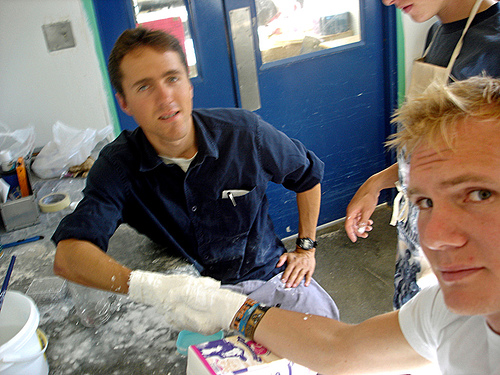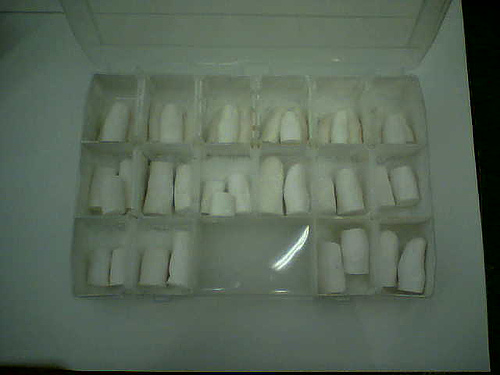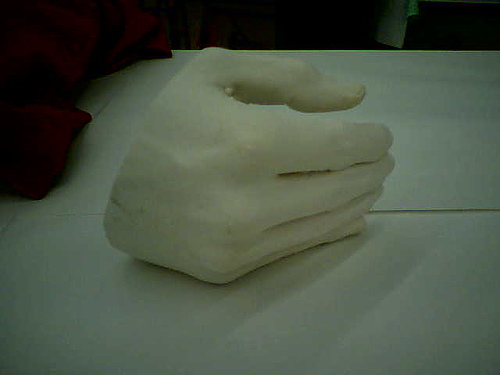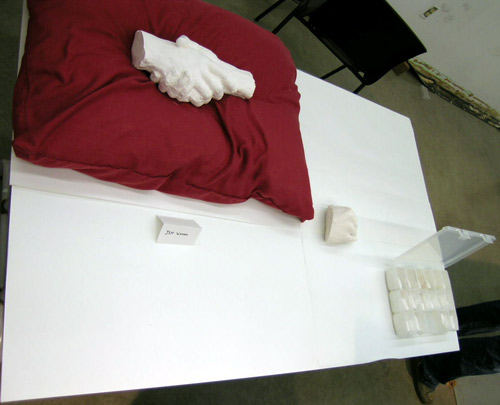After a basic in-class introduction to plaster casting my Materials, Form and Space instructor encouraged us to experiment with casting fragments of our bodies. I asked classmate Andreas if he’d like to try casting a handshake.
We spent an early September afternoon in the sunlit plaster room holding each other in a ritual greeting that normally lasts no longer than a few seconds, while Thomas layered wet plaster bandage over our grip. Once it dried we pried it off, put the two halves back together and filled it with a bucket of plaster, which hardened into the finished product.

Even before we started Andreas and I shook hands a couple dozen times trying to determine what sort of complications we might encounter, what sort of materials we could work with, how we would need an assistant, etc. It was already interesting the way we could grab each other’s hands and look at them as objects, as a technical problem, without feeling uncomfortable about repeatedly touching someone you’ve only known a week.
The actual casting was tedious, uncomfortable work. What I didn’t expect was the way the process changed the meaning of the handshake. After three hours, with the plaster hardening and our arms aching, my hand felt fragmented, apart from myself. Our hands no longer belonged to us and at the same time they were now a single unit unto themselves, one hand inseparable from the other.

(This photo courtesy and copyright Andreas Brændhaugen)
Keeping this experience in mind I then incorporated the cast of our handshake, which I call “The Big Deal,” into my next assignment, which required altering a body cast.
My intention was to completely deconstruct the handshake. I made four more casts of my hand, alone, and cut them into multiple fragments, then compartmentalized them in a plastic utility organizer. I now had a sort of binary of meaning, the completed handshake and the fragmented tools to rebuild it.

I realized there was a second side to this concept: the personal and the impersonal. A handshake, despite its ritual as a public, cultural greeting, is still a very personal act, an intimate, physical union between two people. And the fragmented components I made are void of this meaning: they are sterile tools, the building blocks for something more significant.
So I made a fifth cast of my right hand, shaped as if expecting a handshake and left it intact. It was the intermediary step and, I hoped, the unifying link to the overall piece, the point halfway between the components of the shake and the completed sign, between the private and public.


(This photo courtesy and copyright Karen Kazmer)
Altered Cast: The Big Deal
Comments
3 Responses to “Altered Cast: The Big Deal”
-
Dammit Jeff, you’re making me want to go to art school.
-
If there’s anyone else I wish were here with me (and I do think of this) it’s you and Ross. I’d love to see what you two would produce. Despite being my first art school, I still feel I couldn’t have made a better choice than Emily Carr.
-
you should have made it a white hand shaking a black hand…but otherwise…excellent
Leave a Reply